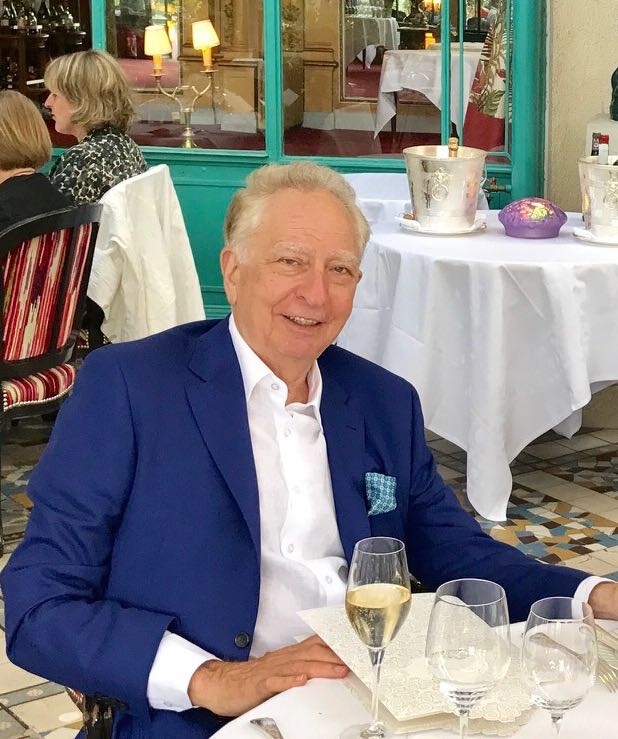An air of inanity pervades the debate about Syria—obscuring the
underlying fears and motives, the real forces behind a surrealistic, blood-soaked
drama worthy of Kafka, Ionesco, or Pinter.
It’s evident, for instance, that the 800-pound guerrilla hovering behind the debate is Israel and its American backers, one of the most powerful lobbies in Washington.
What has not been made clear is that, lurking in the background, is another shadowy hulking presence: Israel’s nuclear weapons capacity, which—as I’ve previously blogged--Israel has never officially acknowledged and most U.S. administrations have done their best to ignore. As have the mainstream press and the gaggle of statesmen, commentators and “experts” with weighty proposals on how to resolve the current crisis.
For instance, Senator Joe Manchin III, a conservative Democrat from West Virginia, would give Bashar al-Assad 45 days to sign the Chemical Weapons Convention and begin ridding the country of its weapons stockpiles. Only if Assad refuses would the American president be authorized to take military action.
“We need some options out there that does something about the chemical weapons,” Mr. Manchin said. “That’s what’s missing right now.”
That proposal, however, comes across as hopelessly naïve when you understand why Syria’s leaders opted for chemical weapons in the first place.
It was not with the intention of deploying CW against their own people. It was instead an attempt to develop an affordable and meaningful deterrent to Israel’s daunting military might, particularly to Israel’s nuclear capability.
That’s the bottom line of several serious studies of Syria’s weapons program, done over the past few years by American and other experts. As a study published by the European Union’s non-proliferation consortium in July 2012, concluded, “Syria’s CWs are not tactical or battlefield weapons, but rather a strategic deterrence against Israel’s conventional superiority and its nuclear weapons arsenal.IWhile Israeli leaders have always portrayed their country as an embattled David, confronting an existential threat from an Arab –and now,Iranian—Goliath, Syria’s perspective has been totally different.
As the rulers in Damascus have seen it, Israel, thanks to its sophisticated industrial base, and unwavering financial and political support from the United States, has been able to develop by far the most powerful military forces in the region—with its own nuclear trump card.
The Syrians, on the other hand, have suffered one humiliating setback after another, from the failure to defeat Israel in 1948, to Israel’s on-going occupation of the Golan Heights, which they took in 1967, to Israel’s repeated forays into South Lebanon.
The Syrians, however, came to realize they could never equal Israel’s military might. They opted instead for a practical alternative: chemical weapons. If not strategic parity, CW would at least give Syria, if the chips were down, a fearful enough weapon to brandish against Israel’s nuclear capabilities.
As the European Union’s study said, “With meager resources, an inadequate military culture and a weakening, less-than-reliable Soviet patron, Syria was in no position to maintain its policy of conventional parity. That became amply clear at the turn of the 1990s, when Syria approached economic bankruptcy, witnessed the collapse of the USSR and had to adapt to rising US influence in the region.”
Syria’s determination to maintain its chemical arsenal could only have increased after 2007 when Israeli planes bombed what was apparently a Syrian attempt to construct a nuclear reactor.
One Israeli analyst claimed that CWs and associated delivery systems became, for lack of better options, the ‘core’ of Syria’s security strategy, a ‘wild card’ that would create enough uncertainty in the minds of Israeli decision makers to prevent an escalation of an existential nature.
Another analyst who has a unique view of Syria’s CW strategy is M. Zuhair Diab, an international security analyst now living in London. From 1981 to 1985 he was a diplomat with the Syrian Ministry of Foreign Affairs. As he put it in a study in 1997.
“Syria seeks to neutralize Israel’s ability to employ nuclear blackmail to coerce it into accepting unfavorable conditions for a peace settlement. Syria’s increased bargaining leverage with Israel as result of its CW capability has been demonstrated by Israel’s inability to dictate its terms in the peace negotiations between the two sides. Indeed, the late Israeli Prime Minister Yitzhak Rabin recognized that a condition ofstrategic stalemate had emerged between Israel and Syria.”
Syria has not signed the 1993 Chemical Weapons Convention. Whenever the issue comes up, Syria’s leaders have invariably cited Israel’s nuclear weapons program, and the fact that Israel refused to sign the 1968 Non-Proliferation Treaty.
In other words, Syria is not going to unilaterally lay down its most potent weapon.
Think what you will of the men governing Syria, but how can Israel or its American backers, answer that argument? Particularly if they still refuse to admit officially that Israel even has nukes?
The analysis of Syria’s CW program by the former Syrian diplomat, was written in 1997, 14 years before the outbreak of the civil war which is currently ripping apart his country. At that time, according to him, there were only two realistic scenarios for Syrian tactical use of CW. They both involved defending against Israel.
“1) if Israel launches an offensive involving first use of CW, forcing Syrian units to retaliate in-kind; or 2) if the defensive perimeter of Damascus, the Syrian capital, (italics added) collapses as a result of an Israeli incursion through the Golan Heights or a flanking maneuver through the Bekaa Valley in Lebanon.”
With the existence of the Assad regime now at stake, the Syrian military’s doctrines on whom they might target with CW may have changed. But not the trip wire that might provoke them to unleash CW: a serious threat to the Syrian capital.
What is striking about the study from the former Syrian diplomat I’ve just cited is the fact that, according to some sources, the reason that Syrian military units may have resorted to CW on August 21, was as a desperate measure to drive rebel forces from a strategically key suburb of Damascus.
